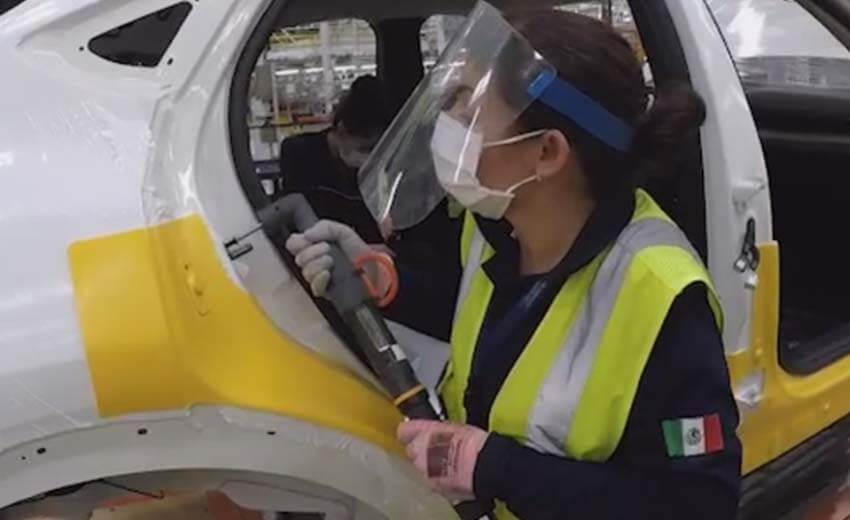The apparent demise of the Build Back Better (BBB) Act in the United States is a “Christmas present” for Mexico, according to Economy Minister Tatiana Clouthier.
Democratic Party Senator Joe Manchin announced Sunday that he wouldn’t support BBB, effectively killing off the proposed legislation, which has already been approved by the United States House of Representatives.
If passed, BBB would increase credits available to United States consumers buying U.S.-made electric vehicles (EVs) from US $7,500 to as much as US $12,500. The act also has a range of other provisions related to infrastructure construction, childhood education, climate change and social policy.
The Mexican Employers Federation (Coparmex) warned earlier this month that the bill poses a threat to the Mexican automotive industry, while the federal government indicated that it would retaliate commercially if the proposed legislation passed the U.S. Congress in its current form.
Coparmex and the government said that the proposed legislation violates the provisions of the United States-Mexico-Canada Agreement (USMCA), the free-trade pact that took effect last year.
Clouthier on Monday celebrated Manchin’s rejection of BBB in a Twitter post in which she wrote, “It seems that our Christmas present came early.” At the top of the post was a link to a report by the newspaper El Financiero with the headline “Mexico and Canada breathe: U.S. senators will reject electric car subsidies.”
“We’re very happy because our efforts are finding an echo, strengthening Mexico’s position against the incentives initiative for EVs made in the United States,” Clouthier said.
While the future of BBB is uncertain — Senate Democrats were to meet on Tuesday to try to chart a path forward for the US $1.75 trillion package — experts who spoke with the newspaper Milenio warned that the United States’ plan to offer additional incentives to consumers buying U.S.-made EVs and Mexico’s plan to overhaul the electricity market to favor the state-owned Federal Electricity Commission could trigger a trade dispute between the two countries.
United States companies have denounced the proposed electricity reform, arguing that it violates the USMCA.
“Although they’re independent paths, each of the actions unfortunately intersects with each other,” said former economy minister Ildefonso Guajardo, now a federal deputy.
He said that if the electricity reform passes Congress — a vote is expected in April — private companies will sue Mexico in the investment court system. There is also the possibility of a state-to-state dispute. If the United States wins, it could impose tariffs on Mexican exports, Guajardo said.

For its part, Mexico should take actions to dissuade an increase to incentives that apply exclusively to U.S.-made EVs, he said, citing tariffs on some U.S. products as an option.
The former economy minister, the previous government’s chief USMCA negotiator, said the proposals of both the Mexican and United States governments send a message that it’s OK to violate the new trade pact.
“And that’s to the detriment of the future and growth in the region,” Guajardo said.
The Biden administration’s EV plan is “aberrant … a very bad strategy … and sends the wrong signals,” he said.
“I would expect the United States Congress to correct the course, but we have to see the final determination. The position of … Tatiana Clouthier was correct,” Guajardo said, referring to the economy minister’s warning earlier this month that the government would retaliate commercially if BBB passed the Senate in its current form.
Juan Carlos Baker, CEO of Ansley Consultores and a trade negotiator for the previous federal government, also advocated the imposition of tariffs if the United States violates the USMCA with its EV incentives.
“… It doesn’t involve more than selecting a range of products, determining tariffs and publishing them in the official federal gazette,” he said.
With regard to the proposed electricity reform, Baker remarked: “I have no doubt that the United States and other countries will use [retaliation] mechanisms. That’s what they’re for – to guarantee compliance with trade rights.”
With reports from El Universal and Milenio
